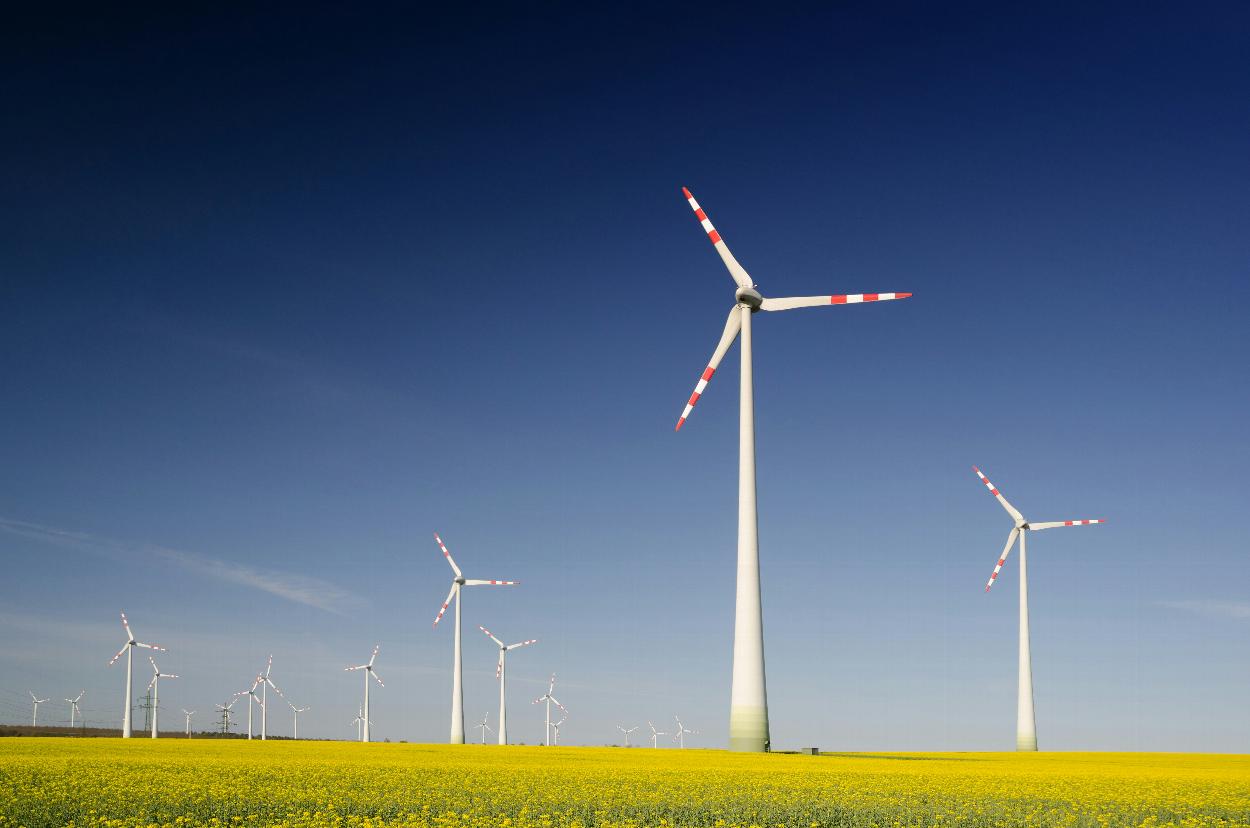In 2025, we are witnessing one of the most dramatic and widespread increases in the adoption of an entire job role, sector, and way of thinking that the corporate world has ever seen.
Environmental, Social and Governance (ESG) roles, once an afterthought subset in the corporate landscape reserved for the extreme forward-thinkers and visionaries or firms with infinite budgetary resources, have since exploded into life and are now occupying the forefront of the future of big business with an estimated 75,000 roles in action worldwide. From analysts, researchers and data executives to sustainability directorship – these roles represent an industrial-scale movement in how corporations interact with our planet and society.
To provide some perspective: in a matter of just 15 years, we've seen ESG role numbers grow exponentially from fewer than 4000 globally to 75,000+. This makes ESG one of, if not the fastest-growing career sectors in the world.
Today, this sector sees broad representation across many different industries. From finance, tech and banking to manufacturing, operations and beyond, these roles offer fantastic opportunities to applicants with the credentials. Specifically speaking, entry-level ESG roles currently present average salaries of circa £50,000, whilst seasoned executives in board-level positions can expect to receive salaries up to and exceeding £250,000pa.
These numbers are great for helping to illustrate the mass expansion of ESG in the business world, but they only tell part of the story.

The surge in ESG roles demonstrates change on a higher level altogether. It represents a fundamental shift in thought leadership and mindset towards how we view the role of businesses, big and small, in securing the future of our world. Advancements in science have unlocked the indisputable links between corporations and the well-being of the environment we live in. More importantly, science can tell us with unprecedented clarity the extent to which business can be the driving force behind positive change and the rekindling of our relationship with the planet.
Consequently, companies are actively seeking out cutting-edge talent within the sector. This is the root cause of the mammoth shift towards ESG adoption.
Let's explore the evolution of ESG roles in further detail. We'll also take a look at the driving force behind their incredible growth and discuss why, ultimately, they're here to stay.
Zero to Hero (2008 - 2013)
If we take a momentary glance back to 2008 – 2013, we'll see that the entire concept and prospect of ‘ESG as a career' was starkly different to what we see in 2025. As mentioned above, roles within sustainability as a whole, were widely viewed as optional, or a nice-to-have, reserved for multi-nationals and larger corporations. Almost inconceivably (when compared with today), the entire global ESG market in 2013 contained less than 5000 dedicated/specialist positions.
Consequently, during this period, most of the responsibilities with sustainability were spread thinly between existing people, teams and departments. There was seldom a fully organised or cohesive approach in place. Where there was a provision in place, it was primarily concerned with the maintenance of PR and upkeep of reputation, rather than meaningful and comprehensive analysis, management and substantial change within ESG practices that we see today.
This restricted implementation was perfectly indicative of the attitudes and understanding of ESG within the business world at the time. Despite the mounting scientific evidence of the potential impact (both positive and negative) of big business on the world around us, most companies treated sustainability as a cost and of little importance, versus implementing ESG as a high-priority strategic necessity. The roles that did exist during this period were detached from hierarchical structures, with virtually zero influence on direction or decision-making.
Despite the formidable challenges of 2008 – 2013, there was a hint of what was to come bubbling away under the surface. The early adopters, essentially the pioneers of ESG as a profession, were busy laying the groundwork for their future colleagues. The development of critical frameworks ensued, frameworks that would dictate methods of measuring and reporting the environmental impact of businesses.
Against the widespread lack of funding and commitment from their employers, these ESG forefathers began to undertake the immense challenge of firstly sampling and tracking scientific data, but crucially, turning that data into reliable and standardised metrics for widespread utilisation in the business world. This was their calling, to develop the processes that would later become common industry standards.
This period, whilst fraught with limitations, set the stage for the explosive future lurking around the next corner.

Gathering Speed (2013 - 2018)
The business world could no longer divert its gaze. Driven by continued scientific discovery and the emergence of political movements such as global climate agreements during this period, researchers regularly unveiled increasingly detailed evidence reinforcing the link between corporate activity, and a substantial environmental impact.
The aptly named 2015 Paris Agreement was a ground-breaking moment for ESG and its emergence in business, as it brought to light the first clearly defined emissions reduction targets and began the process of distributing accountability.
Similarly, reports from the IPCC contributed heavily to building urgency and timescales around the impact of continued environmental damage and degradation, and specifically the role of big business within that.

The accumulation of scientific evidence proved the catalyst for the first notable shift in ESG job creation – this was the business world taking action, the wheels of change were in motion.
ESG roles expanded from <5000 to nearly 25,000 worldwide in just 5 years. At this time, companies began establishing dedicated sustainability departments, tasked with grabbing the bull by the horns and quickly gaining an understanding of just how much work was to be done, or indeed undone in a never-before-seen proactive manner.
This was essentially the beginning for mass ESG practices and jobseekers alike. From obscurity to a central function within leading corporations and integrated into the fibre of business as we knew it. Suddenly, buying decisions, supply chains, marketing communications, product development, IT and the like had to sit up and pay attention to a new form of compliance – a new way of working.
So, during the “gaining speed” phase of 2013 – 2018, ESG became far more than a neglected tick-box afterthought, it was now a competitive opportunity within big business. As we know, that only ever means one thing.

Here to Stay (2018 - 2025)
This part of the story could easily have been entitled “Here comes the Boom”, for want of a better term. The years 2018 – 2025, encompass incredible acceleration in ESG job creation, driven by much of the above which culminated in the perfect storm.
Scientific progression, public-level awareness, worldwide acceptance and a corporate shift in prioritisation, coupled with newfound technological advancements in climate modelling and carbon footprint analysis, meant that now, ESG was commonplace at the very forefront of the strategy of world-leading businesses. As a major corporation or multi-national, without a dedicated and cutting-edge team full of talent within your sustainability department, you are falling grossly behind your competition and business peers. Expectations have changed dramatically.
The numbers tell a rather compelling story. From around 25,000 roles in 2018, the worldwide ESG job market exploded to a total of 75,000 in 2025.
As we've discovered thus far, this explosion came about because there was a monumental shift in science, evidence and data, which carried over immensely positively to effect change in the corporate world. They were forced to take notice.
Here are some real-world examples of how key sectors in business have continued to lead this sustainability transformation from 2018 onwards:
- Finance: Banks, investment firms and insurance giants have created dedicated divisions, focused solely on the provision of sustainable investment and underwriting as an offering to their clients.
- Technology: The past 5 years have seen an incredible shift of focus within big tech, with firms competing ferociously to win the race in developing the most reliable and accurate environmental tracking tools.
- Energy: Renewable energy divisions are increasingly at the forefront of recruitment drives, funding and strategy within the omnipresent, traditional energy companies whom have been so reliant on fossil fuels and non-renewables for their entire histories.
- Manufacturing: In contrast to years gone by, the manufacturing profession compromises it's intense focus on ‘hardcore' profitability and economies of scale in favour of building in sustainable practices, responsible sourcing of materials and the management of wastage.
- Consulting: Environmental, Social and Governance consulting is now a professional in and of itself. Major firms are legally required to ensure compliance in these areas and therefore are willing to invest heavily in market leading ESG advisory services.
The current ESG job market reflects a mature, booming career option for young people and other prospective work entrants such as graduates, whilst also providing a viable option for those who are already in work but looking for career path diversification or re-skilling. Crucially, and indicatively of the scale of opportunity within the industry, ESG is bridging the gap between environmental expertise and traditional business functions. Namely, these roles have already seen progression from focusing purely on compliance, to now being the driving force behind investment, innovation and competitive advantage for many huge market players.
‘Big business' has come a long way from simply minimising environmental impact and improving PR – they're competing for the opportunity to lead the transition to a truly sustainable world. And for good reason.
Recent studies have demonstrated that around 71% of global emissions are attributable to just 100 of the world's largest organisations. A sobering statistic, and not a great look for capitalism, but one that also presents an incredible opportunity.
With such an overwhelming concentration of influence, corporate investment in driving development within environmental sustainability can spark an avalanche of positive change on a colossal scale.
ESG: An Ode to the Future

As this article and many others like it have shown, ESG roles paint a picture of dramatic transformation in a relatively short period of time. Since 2008, we've seen a mere 5000 roles worldwide grow exponentially to c. 75,000 in 2024-25.
The numbers are indeed mindboggling, but it's important to note that they're merely indicative of a what has been a seismic shift in mentality and investment within businesses across the globe. They're a by-product of a deeper cultural evolution that demonstrates how we view our relationship with the planet.
For those out there considering a career within ESG, the message is clear: whatever your skillset – whether you're a business leader, a strategy consultant or data analyst, you can play a critical role in a sustainable future. The growing range of positions available today means that professionals from an equally diverse range of backgrounds and experience have access to excellent career options.
The ESG industry is no longer merely an experimental, up-and-coming career trend, but an auspicious opportunity to partake in humanities foremost mission.
Thank you for reading this informative statistical post within our Knowledge Hub, we hope that it provided the information you were searching for.
For all general accounting enquiries, please give us a call or fill out our enquiry form.

